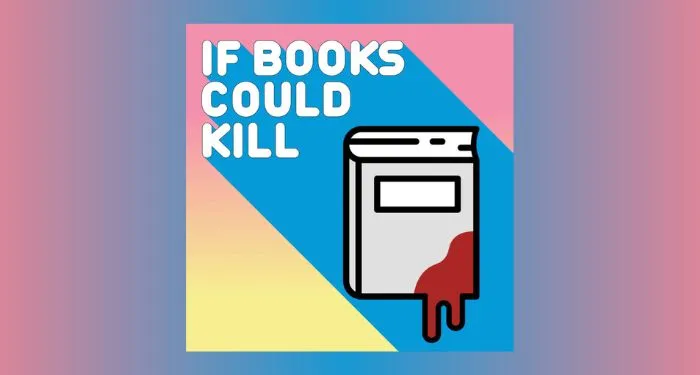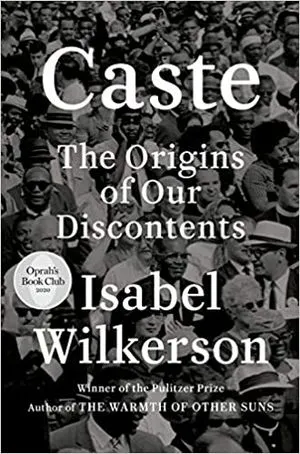
6 Books that Kill and 6 to Read Instead
People often say “I know enough to be dangerous,” as a joke. Yet when you’re talking about some of America’s bestselling nonfiction books, a little bit of knowledge can go to some bizarre, if not downright dangerous, places. The hilarious and insightful podcast, If Books Could Kill, hosted by Michael Hobbes and Peter Shamshiri dismantles blockbuster nonfiction with the tagline ”The airport bestsellers that captured our hearts and ruined our minds.” It turns out that many of the most popular books that promised earthshaking insights are actually based on little science, made up anecdotes and laughably broad overgeneralizations.
In the 20+ episodes so far, Michael and Peter have torn apart books like gendered garbage of Men are from Mars, Women are from Venus, discussed David Brooks’s love for a good sandwich story that reflects America in Bobos in Paradise, and pointed out the actual medical dangers when applying The Secret’s hocus pocus to health.
Once you’ve listened to IBCK’s takedowns of these deceptively dangerous books, I have suggestions for similar books written by actual experts who offer more well informed introductions to economics, psychology, and poverty in America.
Killer Book: Men are from Mars, Women are from Venus by John Gray
IBCK takes on the messed up gender stereotypes of the 1992 bestseller Men are from Mars, Women are from Venus that says men and women are so different, they’re practically from different planets. In addition to noting piles of cringe served up by author John Gray, Michael and Patrick point out that the author is not a psychologist, researcher, or any other type of expert, on anything.
Read Instead
Delusions of Gender: How Our Minds, Society, and Neurosexism Create Difference by Cordelia Fine
Read Instead: Delusions of Gender takes down MAFMWARV in its backpage copy. Written by research psychologist Cordelia Fine, this book uses neuroscience and psychology to dismantle myths about gender that have no backing in science.
Killer Book: Rich Dad, Poor Dad by Robert T. Kiyosaki
IBCK goes into how Rich Dad, Poor Dad is basically an anti-tax screed that offers questionable financial advice and a bunch of “pull your bootstraps” rhetoric as the secret to wealth. Yes, having a Rich Dad can set you up for life. But that’s not usually because of the parents commitment to skipping taxes. What’s missing (besides basic financial principles)? Any discussion of structural inequality.
Read Instead

Toxic Inequality: How America’s Wealth Gap Destroys Mobility, Deepens the Racial Divide, and Threatens Our Future by Thomas M. Shapiro
Shapiro is an actual sociologist professor at Brandeis who studies root causes of structural inequality. To really understand how generational wealth works, readers need to know about “The structure of our neighborhoods, workplaces, and tax code — much more than individual choices — push some forward and hold others back.” Shapiro examines how structural forces affect families of different racial backgrounds for over a decade to make his case.
Killer Book: Hillbilly Elegy by J.D. Vance
J.D. Vance wrote this memoir that made him famous, and a Senator, despite the fact Vance and his family are not really from Appalachia, the region that Vance claims to understand deeply. IBCK roasts this book for offering fake insights into poor, majority-white communities while barely mentioning race.
Read Instead

Caste: The Origins of Our Discontents by Isabel Wilkerson
If you want to understand why certain groups have power in America, try Pultizer Prize-winning journalist Isabel Wilkerson’s Caste. Challenging our great American myth about social mobility, Wilkerson writes about how America has a caste system that creates generational power differences, oppression, and poverty.
Killer Book: Bobos in Paradise by David Brooks
Michael and Peter are truly hilarious when discussing David Brooks, the conservative columnist who, in IBCK’s telling, manages to be a journalist without doing any reporting. Brook’s late ’90s book about the bougie bohemians (bobos) has a lot of anecdotes about lattes and fancy sandwiches, but says little about the actual forces shaping class in America.
Read Instead

How the Other Half Eats: The Untold Story of Food and Inequality in America by Priya Fielding-Singh, Ph.D.
If you’re looking for “sandwich stories” to explain class in America, this book offers a more nuanced and research narrative on how food and nutrition is part of structural inequality. Addressing food insecurity, obesity, and nutrition issues from a structural lens, the book’s author, unlike Brooks, actually has a research background and specializes in families, health, and inequality in America. Dr. Priya Fielding-Singh received her Ph.D. in Sociology from Stanford University. She is a professor at the University of Utah where she researches, teaches, and writes about the many intersections of food equity and health.
Killer Book: The Secret by Rhonda Byrne
IBCK blames Oprah for the popularity of The Secret, a manifesto about manifesting success. While mostly harmless self-help speak about affirmations on the surface, the pod points out that people have seriously risked their health when relying on manifesting rather than conventional medicine.
Read Instead
Presence: Bringing Your Boldest Self to Your Biggest Challenges by Amy Cuddy
While The Secret is based on no science, there are actual behavioral hacks that can give you more confidence, and make it more likely you ace the job interview or impress a potential romantic partner. Cuddy, an expert in nonverbal behavior at Harvard Business School, offers hacks to posture, breathing and eye contact that can make anyone more confident. Feels like a secret, right?
Killer Book: The End of History by Francis Fukuyama
At the end of the Cold War, Fukuyama wrote a book about how the new global opposition would be liberal democracy against “fundamentalist terrorists” and other enemies. Hugely influential post 9/11, this “big idea” book is based on a flimsy thesis that glosses over the complexities of global politics.
Read Instead

Destiny Disrupted: A History of the World Through Islamic Eyes by Tamim Ansary
The End of History is the type of book that happens when audiences have a shallow understanding of major cultural forces. Destiny Disrupted gives valuable context into global history from the Islamic perspective, discussing history from Mohammed through the 21st century.
Don’t sleep on the If Books Could Kill podcast. Hopefully, after reading these better picks, you’ll appreciate what makes these Killer Books so dangerous and great books for the podcast. For more great nonfiction books, check out our other nonfiction picks.




